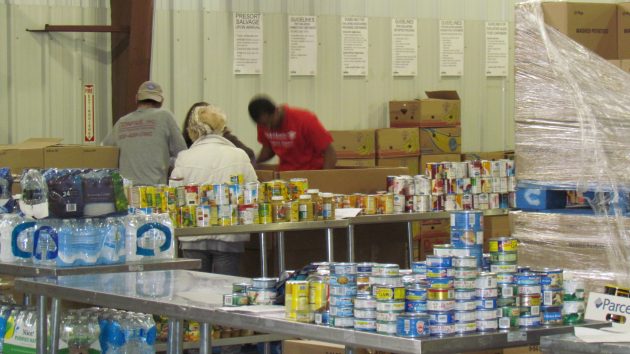
Food insecurity continues during COVID-19 despite government relief
by CM Staff
Future challenges include heightened physical and mental health risks, eviction and risk of homelessness

PHOTO: Food bank/via Flickr
TORONTO — Daily Bread Food Bank, a Toronto-based food bank organization, has released a report detailing the impact of COVID-19 on food insecurity and food bank use in Toronto. The report reveals a 200% increase in new clients accessing food banks in Toronto during the pandemic.
Based on a survey of 220 food bank clients during May and June 2020, the report illustrates the health risks and challenges faced by food bank clients.
Key findings from the report include:
- 76% of new clients began accessing food banks due to COVID-19, primarily because of job loss or a reduction in hours.
- 32% of respondents had at least one household member working pre-pandemic, and 76% of these households reported job loss.
- Due to income loses, the proportion of respondents spending 50% or more of their income on housing rose from 67% pre-COVID-19 to 81% during the pandemic, putting these households at high risk of homelessness.
- 34% of respondents will be unable to continue to pay rent four to six months from now if the crisis continues.
- 28% of respondents received the Canada Emergency Response Benefit (CERB), however, due to the high cost of living in Toronto, still needed to rely on food banks.
- The frequency of going a full day without eating almost every month increased 20%.
In addition, the number of respondents moderately or severely stressed about having enough to feed their household has tripled during the pandemic.
“Once a household falls into persistent poverty, it becomes increasingly difficult to achieve financial stability,” said Neil Hetherington, CEO, Daily Bread Food Bank, in a prepared statement. “Much of Toronto’s population was already struggling financially before the pandemic. With food bank clients unable to pay rent four to six months from now, there is a major risk of a tidal wave of arrears and evictions in our city.”